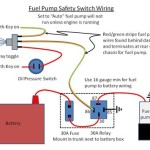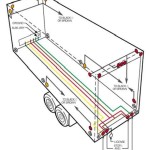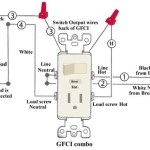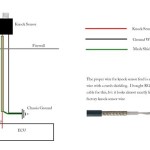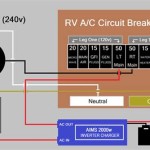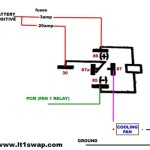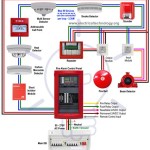Automotive wiring connectors are specialized components that facilitate electrical connections in vehicles. They allow for the transmission of electrical power and data between various components, such as the engine, sensors, and dashboard. One common example of an automotive wiring connector is a sealed connector used to connect an oxygen sensor in the exhaust system to the engine control module.
Automotive wiring connectors are crucial for vehicle functionality, as they ensure reliable and secure connections that prevent electrical shorts and malfunctions. Benefits include reduced downtime, improved safety, and increased reliability of electrical systems. A significant historical development in this field was the introduction of waterproof connectors, which enhanced durability and reliability in harsh automotive environments.
In this article, we will delve into the types, materials, and design considerations of automotive wiring connectors. We will also explore their applications in various vehicle systems and discuss emerging trends in the industry, such as the adoption of smart connectors.
Automotive wiring connectors are essential components that facilitate electrical connections in vehicles, influencing various aspects of their functionality, reliability, and safety. Understanding these aspects is crucial for effectively addressing the topic of automotive wiring connectors.
- Types: Various types exist, from simple bullet connectors to complex multi-pin connectors.
- Materials: Typically made of durable materials like nylon, PBT, and metal alloys for strength and conductivity.
- Design: Compact, lightweight, and designed to withstand harsh automotive environments.
- Applications: Found in diverse vehicle systems, including engine management, lighting, and infotainment.
- Reliability: Ensure secure connections, preventing electrical shorts and malfunctions.
- Safety: Waterproof and sealed connectors enhance durability and prevent electrical hazards.
- Standardization: Adhere to industry standards for compatibility and ease of use.
- Testing: Undergo rigorous testing to meet performance and safety requirements.
- Trends: Smart connectors with integrated sensors and communication capabilities are emerging.
These aspects are interconnected and contribute to the overall effectiveness of automotive wiring connectors. For instance, the use of durable materials and robust designs ensures reliability in harsh conditions, while standardization facilitates compatibility and simplifies maintenance. Understanding these aspects enables engineers and technicians to select and use automotive wiring connectors appropriately, ensuring optimal vehicle performance and safety.
Types
The diversity of connector types is a critical aspect of automotive wiring connectors, enabling them to meet the varying requirements of different electrical connections in vehicles. Simple bullet connectors, with their single-wire termination and low pin count, are suitable for low-current applications such as connecting switches or sensors. In contrast, complex multi-pin connectors, with their ability to accommodate multiple wires and complex pin configurations, are used in demanding applications such as engine management systems and infotainment modules.
The choice of connector type depends on factors such as the number of connections required, the current and voltage ratings, and the environmental conditions. By offering a wide range of types, automotive wiring connector manufacturers cater to the diverse needs of vehicle electrical systems. Understanding the different types of connectors is essential for engineers and technicians to select the most appropriate connector for a particular application, ensuring optimal performance and reliability.
In practical applications, the use of different connector types can be observed throughout a vehicle’s electrical system. For instance, bullet connectors are commonly found in low-power circuits, such as those for interior lighting or power window switches. Multi-pin connectors, on the other hand, are used in more complex systems, such as the engine control module or the audio system. The proper selection and use of these connectors are crucial for ensuring the safe and reliable operation of vehicle electrical systems.
Materials
The materials used in automotive wiring connectors play a critical role in ensuring their performance, reliability, and durability in harsh automotive environments. Durable materials such as nylon, PBT, and metal alloys are specifically chosen for their strength and conductivity, which are essential for maintaining secure electrical connections.
Nylon and PBT are engineering plastics known for their strength, toughness, and resistance to heat and chemicals. They are commonly used in connector housings and insulators, providing structural support and electrical insulation. Metal alloys, such as copper alloys and aluminum alloys, are used for terminals and contacts due to their excellent electrical conductivity and durability. These materials can withstand high currents and maintain reliable connections over extended periods.
Real-life examples of these materials in automotive wiring connectors include:
- Nylon housings: Used in connectors for sensors, lighting systems, and engine management modules.
- PBT insulators: Found in high-temperature connectors used in exhaust systems and near heat sources.
- Copper alloy terminals: Used in high-current connectors for battery connections and starter motors.
- Aluminum alloy contacts: Used in lightweight connectors for infotainment systems and advanced driver-assistance systems.
Understanding the relationship between materials and automotive wiring connectors is crucial for several reasons. First, it enables engineers to select the appropriate materials for specific applications, considering factors such as current rating, temperature range, and environmental conditions. Secondly, it helps in predicting the performance and durability of connectors, which is essential for ensuring vehicle safety and reliability. Finally, understanding material properties allows for the development of new and innovative connector designs that meet the evolving demands of automotive electrical systems.
In summary, the use of durable materials like nylon, PBT, and metal alloys is a critical aspect of automotive wiring connectors. These materials provide the strength, conductivity, and reliability necessary for secure electrical connections in harsh automotive environments. Understanding the connection between materials and connectors is essential for selecting the right connectors for specific applications, predicting their performance, and developing innovative designs that meet the demands of modern vehicles.
Design
The design of automotive wiring connectors is crucial for ensuring their functionality and reliability in the challenging environment of vehicles. They must be compact to fit into tight spaces, lightweight to minimize weight and improve fuel efficiency, and robust enough to withstand extreme temperatures, vibrations, and moisture.
- Compact Size: Automotive wiring connectors are designed to be as small as possible to fit into the limited spaces available in vehicles. This compactness allows for efficient use of space and reduces the overall weight of the vehicle.
- Lightweight: The materials used in automotive wiring connectors are carefully chosen to be lightweight, reducing the overall weight of the vehicle. Lightweight connectors contribute to improved fuel efficiency and reduced emissions.
- Environmental Durability: Automotive wiring connectors are designed to withstand harsh automotive environments, including extreme temperatures, vibrations, and moisture. They are often sealed to prevent the ingress of dust and water, ensuring reliable operation in all conditions.
- Robust Construction: The housings and terminals of automotive wiring connectors are made of durable materials, such as nylon and metal alloys, to withstand the rigors of the automotive environment. Robust construction ensures that connectors can handle the high currents and voltages found in vehicle electrical systems.
In summary, the design of automotive wiring connectors is focused on achieving compactness, lightness, environmental durability, and robust construction. These design aspects are essential for ensuring the reliable and efficient operation of electrical systems in vehicles, contributing to overall vehicle performance, safety, and fuel efficiency.
Applications
Automotive wiring connectors are essential components in a wide range of vehicle systems, including engine management, lighting, and infotainment. They play a critical role in transmitting power and data between various electrical components, enabling these systems to function properly.
In modern vehicles, engine management systems rely on a multitude of sensors and actuators to optimize engine performance, reduce emissions, and improve fuel efficiency. These sensors and actuators communicate with the engine control unit (ECU) through a network of wiring connectors, ensuring real-time data exchange and control. Similarly, lighting systems utilize wiring connectors to connect headlamps, taillights, and other lighting components to the vehicle’s electrical system, providing illumination and enhancing visibility. Infotainment systems, which integrate audio, video, and navigation functions, also rely on wiring connectors to connect displays, control units, and speakers, enabling users to access entertainment and information while on the road.
The diverse applications of automotive wiring connectors highlight their critical role in the functionality and safety of vehicles. Without these connectors, electrical systems would not be able to operate effectively, leading to potential malfunctions, safety hazards, and reduced vehicle performance. Understanding the applications of automotive wiring connectors allows engineers, technicians, and vehicle owners to appreciate their importance and ensure proper maintenance and replacement when necessary.
Reliability
Reliability is a critical aspect of automotive wiring connectors, influencing the overall performance and safety of vehicles. Secure connections are essential for preventing electrical shorts and malfunctions, which can lead to a range of problems, from minor inconveniences to catastrophic failures. Reliable wiring connectors ensure that electrical signals and power are transmitted properly throughout the vehicle’s electrical system, enabling various components to function as intended.
Real-life examples of the importance of reliable wiring connectors abound in the automotive industry. Loose connections can lead to flickering lights, faulty sensors, or even engine control issues. In severe cases, electrical shorts can cause fires or other hazards. By ensuring secure connections, automotive wiring connectors play a vital role in preventing such problems, contributing to the overall safety and reliability of vehicles.
Understanding the connection between reliability and automotive wiring connectors is crucial for engineers, technicians, and vehicle owners alike. Proper maintenance and replacement of wiring connectors are essential to maintain reliable electrical connections. Regular inspections and testing can help identify and address potential issues before they lead to more significant problems. By prioritizing reliability in automotive wiring connectors, we can enhance vehicle safety, improve performance, and ensure peace of mind for drivers and passengers.
In conclusion, reliability is a cornerstone of automotive wiring connectors, preventing electrical shorts and malfunctions that could compromise vehicle safety and performance. Understanding this connection enables us to appreciate the critical role of wiring connectors and emphasizes the importance of proper maintenance and replacement. By prioritizing reliability in automotive wiring connectors, we contribute to the overall safety, efficiency, and longevity of vehicles.
Safety
In the context of automotive wiring connectors, safety is paramount. Waterproof and sealed connectors play a crucial role in enhancing the durability of electrical connections and preventing electrical hazards that could compromise vehicle performance and safety.
- Protection against Moisture: Waterproof connectors are designed to withstand exposure to water and moisture, preventing corrosion and ensuring reliable electrical connections. This protection is vital for components located in areas prone to water ingress, such as engine compartments and underbody systems.
- Dirt and Debris Resistance: Sealed connectors are designed to prevent the ingress of dirt, dust, and other contaminants. This is especially important for connectors used in harsh environments, such as off-road vehicles or construction equipment, where exposure to abrasive particles could damage electrical contacts.
- Electrical Insulation: Waterproof and sealed connectors provide excellent electrical insulation, preventing short circuits and electrical shocks. This is crucial for high-voltage systems, such as those found in hybrid and electric vehicles, where proper insulation is essential for safety.
- Durability: Waterproof and sealed connectors are built to withstand extreme temperatures, vibrations, and other environmental stresses. This durability ensures that electrical connections remain secure and reliable over the long term, contributing to the overall longevity and safety of the vehicle.
In summary, waterproof and sealed connectors are essential for enhancing the safety and durability of automotive wiring connectors. Their ability to withstand moisture, dirt, and other environmental factors ensures reliable electrical connections, prevents electrical hazards, and contributes to the overall performance and longevity of vehicles.
Standardization
In the automotive industry, standardization is crucial for ensuring compatibility and ease of use of wiring connectors. By adhering to industry standards, manufacturers can produce connectors that are interoperable, allowing for seamless integration and maintenance across different vehicle makes and models. Standardization also promotes cost-effectiveness and reduces lead times, as manufacturers can leverage economies of scale and streamline production processes.
Real-life examples of standardization in automotive wiring connectors include the Deutsches Institut fr Normung (DIN) standards, which define the dimensions, materials, and performance requirements for various connector types. By adhering to these standards, manufacturers can ensure that their connectors meet specific quality and safety benchmarks, ensuring compatibility with existing wiring systems. Furthermore, the International Organization for Standardization (ISO) has developed standards for automotive electrical connectors, providing a global framework for connector design and testing.
Understanding the practical applications of standardization in automotive wiring connectors allows engineers, technicians, and vehicle owners to appreciate the importance of using standardized connectors. Standardized connectors facilitate efficient repairs and replacements, reduce downtime, and enhance the overall reliability of vehicle electrical systems. By adhering to industry standards, manufacturers can contribute to the development of a robust and interoperable automotive electrical infrastructure.
In summary, standardization is a critical aspect of automotive wiring connectors, ensuring compatibility, ease of use, cost-effectiveness, and reliability. By adhering to industry standards, manufacturers can produce connectors that meet specific requirements and seamlessly integrate into existing vehicle electrical systems. Understanding the principles of standardization allows stakeholders to appreciate the importance of using standardized connectors, contributing to the overall safety, efficiency, and longevity of vehicles.
Testing
Rigorous testing is a cornerstone of automotive wiring connector development, ensuring that these critical components meet stringent performance and safety standards. This testing encompasses various aspects, each playing a crucial role in the reliability and integrity of electrical connections in vehicles.
- Electrical Performance: Connectors are tested for current carrying capacity, voltage withstand, and insulation resistance to ensure they can handle the electrical demands of vehicle systems.
- Environmental Endurance: Connectors are subjected to extreme temperatures, humidity, vibration, and corrosion to simulate real-world conditions and assess their durability.
- Mechanical Integrity: The physical strength and stability of connectors are tested through pull-out force, insertion force, and mating cycles to ensure they can withstand the rigors of vehicle operation.
- Safety Compliance: Connectors are tested against industry standards and regulations to verify they meet safety requirements, such as flame retardancy and resistance to electrical shock.
By undergoing rigorous testing, automotive wiring connectors are validated to meet the high demands of vehicle electrical systems. This testing ensures that connectors can reliably transmit power and data, withstand harsh operating conditions, and maintain electrical integrity over the lifespan of the vehicle. Ultimately, rigorous testing contributes to the overall safety, reliability, and performance of vehicles.
Trends
As the automotive industry evolves towards greater technological sophistication, the demand for smart connectors with integrated sensors and communication capabilities is on the rise. These advanced connectors are poised to revolutionize automotive wiring systems, offering a range of benefits that enhance vehicle performance, safety, and convenience.
The integration of sensors into wiring connectors opens up new possibilities for data collection and analysis. By monitoring parameters such as temperature, current, and vibration, smart connectors can provide valuable insights into the health and performance of vehicle components. This data can be used for predictive maintenance, allowing technicians to identify potential issues before they escalate into major failures. Additionally, smart connectors can facilitate communication between different vehicle systems, enabling real-time data sharing and coordinated control.
Real-life examples of smart connectors in automotive applications include:
- Battery monitoring connectors: These connectors integrate sensors to monitor battery voltage, temperature, and state of charge, providing valuable data for battery management systems.
- Power distribution connectors: Smart connectors in power distribution systems can monitor current flow and identify potential overloads, enhancing electrical safety and preventing damage to sensitive components.
- Diagnostic connectors: Integrated sensors in diagnostic connectors allow for real-time monitoring of vehicle systems, facilitating fault detection and rapid troubleshooting.
The practical applications of smart connectors in automotive wiring systems are vast. By leveraging data and communication capabilities, these connectors empower engineers to develop more intelligent and efficient vehicles. They contribute to improved vehicle reliability, reduced maintenance costs, enhanced safety features, and a more connected driving experience.
In summary, the emergence of smart connectors with integrated sensors and communication capabilities is a significant trend in automotive wiring connectors. These advanced connectors offer a range of benefits, including improved data collection, enhanced communication, and increased functionality. As the automotive industry continues to embrace smart technologies, smart connectors will play a critical role in shaping the future of vehicle design and performance.










Related Posts

